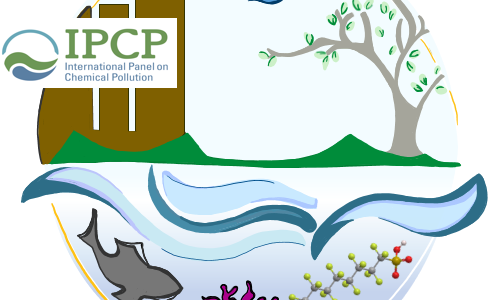When developing the structure and scope for the international legally binding instrument on plastic pollution and its subsidiary bodies, it is of utmost importance to address the issue of Conflict of Interest. Treaty negotiations must be based on valid and reliable science to support evidence-based decision-making and to identify sustainable solutions. Including experts with a Conflict of Interest would compromise credibility and create a high risk of conflicting and/or incompatible outcomes and delay the effectiveness of the treaty.
Right now, the Intergovernmental Negotiating Committee (INC) made up of United Nations (UN) member states is negotiating to develop the structure, scope, obligations and provisions of the new UN Plastics Treaty. Ideally, the treaty will include a subsidiary body as a science-policy interface tailored to the needs of the treaty. A strong Conflict of Interest policy to govern the participation in discussions and decision-making (including membership in expert working groups) should be implemented. Failure to minimize and appropriately manage Conflicts of Interest in the treaty negotiations and its future subsidiary bodies may result in:
- loss of credibility,
- conflicting and/or incompatible outcomes,
- delayed implementation or promotion of inappropriate solutions,
- eroding trust in science and scientists.
What is Conflict of Interest?
Conflict of Interest refers to financial or other interests which could significantly impair an individual’s objectivity or create an unfair advantage for any person or organization. It is unavoidable and indeed beneficial that every expert represents a particular view and brings their values into the discussion – this does not constitute a Conflict of Interest. A Conflict of Interest only arises when an individual could have a direct and material gain from a certain outcome of this scientific work that can interfere with the impartial investigation of the scientific question.
In the context of the Plastics Treaty, past or present employment by or consulting for the chemical or plastics industry and related organizations constitutes a Conflict of Interest. The same is true for experts who have received research funding from such sources.
What are the tactics for manufacturing doubt?
According to a new scientific publication conducted by experts representing 36 institutions, more than two dozen strategies and tactics have been used to counter scientific evidence or to promote narratives favourable to specific industry sectors. Examples include:
- Criticizing study designs or overemphasizing the shortcomings of scientific studies.
- Discrediting, intimidating or threatening scientists.
- Publishing misinformation, e.g., through consulting companies that specialize in supporting private interests.
- Hiding or obscuring the sources of funding for research.
- Cherry-picking data, designing studies to fail or come to a desired conclusion, or conducting meta-analyses that dilute scientific evidence.
- Extensive lobbying towards policymakers so that the voice of the vested interest is often the main or even the only one heard in public consultations.
For a compilation of documented examples, please see section 4 in the below-mentioned scientific publication.
Recommendations for INC-3, upcoming inter-sessional work and the content of the Plastics Treaty
- Ensure that independent science informs the INC’s work, including the inter-sessional work (i.e., by involving experts without Conflicts of Interest). An interim Conflict of Interest policy similar to the one established under other MEAs can serve as guidance.
- Include a dedicated, mandated and trusted science-policy interface as a subsidiary body in the Plastics Treaty that is tailored to the needs of the treaty, similar to, for example, the POPs Review Committee of the Stockholm Convention on Persistent Organic Pollutants. This body should have the mandate to formulate targets and effective mechanisms for their implementation. Where needed, this body would work in collaboration with the new intergovernmental Science Policy Panel on chemicals, waste and pollution prevention and other science-policy bodies in international chemicals management.
- For experts who will work with the INC and the treaty’s subsidiary bodies, such as the science-policy interface, define and enforce rigorous Conflict of Interest provisions. Experts with a Conflict of Interest should not participate in the core work of the inter-sessional working groups or the science-policy interface.
- For the work of a subsidiary body, e.g., the science-policy interface, implement independent audits to a) review compliance with the Conflict of Interest provisions, and, if needed, recommend corrective measures to the governing body, and b) ensure that the Plastics Treaty is guided by transparent, impartial, credible and robust science and knowledge, as mandated by the UNEA Resolutions 5/8 and 5/14.
- Include as many elements of transparency as possible in the work of the subsidiary bodies, including a science-policy interface. Among others, such bodies should become vigorous proponents of the FAIR (Findable, Accessible, Interoperational, Reuseable) and CARE (Collective Benefit, Authority to Control, Responsibility, Ethics) principles for scientific data management and stewardship.
- This work was facilitated by IPCP, the International Panel on Chemical Pollution, www.ipcp.ch.
For detailed background information, please refer to our publication: Schaeffer et al. 2023. Conflicts of Interest in the Assessment of Chemicals, Waste and Pollution. Environmental Science & Technology. DOI: 10.1021/acs.est.3c04213
CONTACT
Andreas Schaeffer, RWTH Aachen University, andreas.schaeffer@bio5.rwth-aachen.de
Martin Scheringer, ETH Zürich, scheringer@usys.ethz.ch
Bethanie Carney Almroth, University of Gothenburg, bethanie.carney@bioenv.gu.se
Martin Wagner, Norwegian University of Science and Technology, martin.wagner@ntnu.no
Jane Muncke, Food Packaging Forum Foundation, jane.muncke@fp-forum.org
